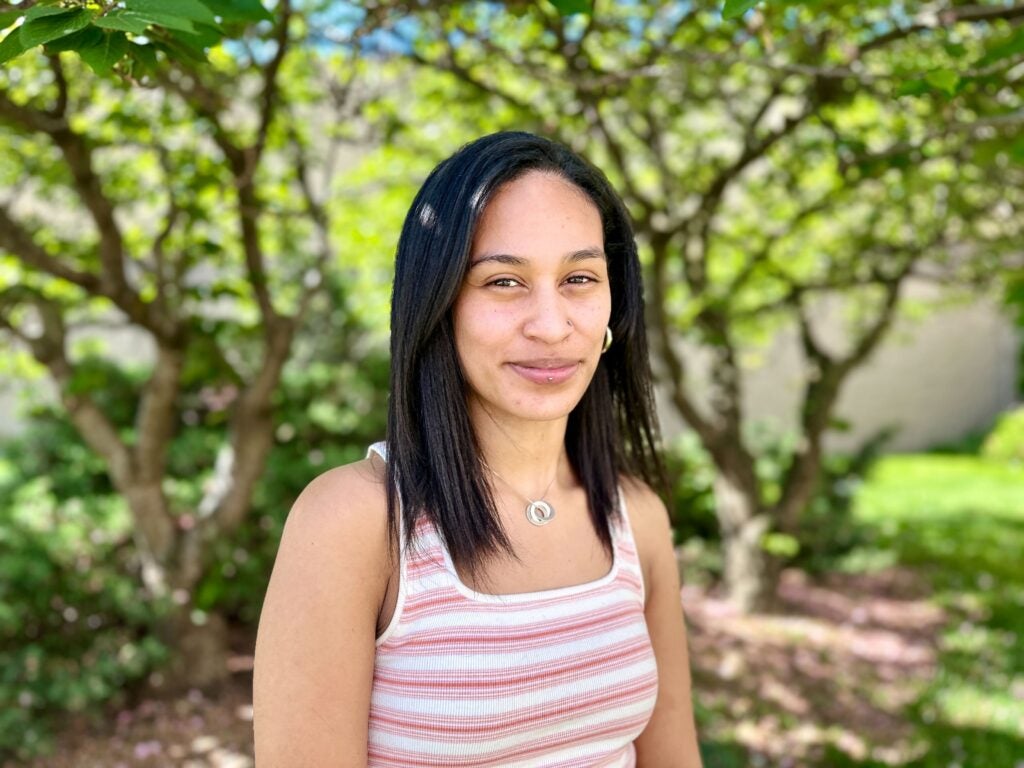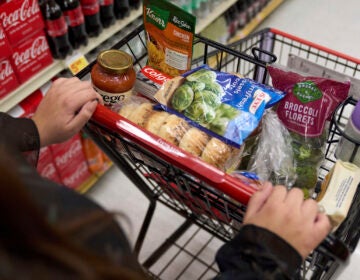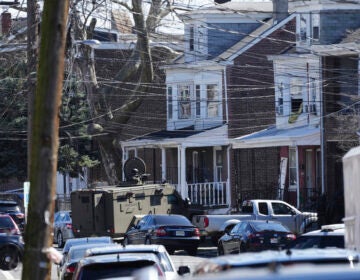‘No room for emergencies’: A Bucks County program helps people who earn too much for assistance but lack emergency savings
The United Way of Bucks County launched LIFT to help residents who are employed yet financially vulnerable.
Listen 1:38
Rachel Lozano, 26, is a mother of three who works in a doctor's office. When her car broke down, she received help through the United Way of Bucks County's pilot program. (Vicky Diaz-Camacho/WHYY)
From Philly and the Pa. suburbs to South Jersey and Delaware, what would you like WHYY News to cover? Let us know!
In Bucks County, Pennsylvania, a United Way program — Learn to Invest in Your Future and Thrive — is addressing a critical need among workers who struggle to manage emergency expenses.
LIFT supports those identified as “Asset Limited, Income Restrained, Employed” — a designation for people who are employed yet financially vulnerable.
Rachel Lozano, a 26-year-old mother of three and part of the ALICE demographic, found herself in crisis when her car broke down last fall. Without savings for a new vehicle, Lozano relied on friends and costly Uber rides to manage her commute.
“I was in despair,” Lozano said, reflecting on her situation.
She represents the 35% of single, female-headed ALICE households in the area, where the average income is $38,000.
A quick online search led Lozano to LIFT, which offered her free financial education courses and connected her with a financial advisor. Through the program, she also secured a low-interest car loan, contingent on her course completion. Within a month, Lozano saved enough for a down payment and purchased a new car.

United Way of Bucks County’s data suggest nearly 29% of the U.S. population fits the ALICE profile, with about one in three in Bucks County alone. Advocates say cars are a necessary part of life in the suburbs. Workers who typically earn “just enough” include health care workers, childcare experts and certified nurse aids caring for seniors.
Social scientists say this group is “economically vulnerable,” at “greater social and health vulnerability” because of their restricted access to public assistance programming.”
They often find themselves on the edge of financial disaster, ineligible for most public assistance because of their income levels.
“The average survival budget here ranges from $34,000 for a single adult to $84,000 for a family of four needing childcare,” said Marissa Christie, CEO of United Way of Bucks County.
Latino and Black residents are the hardest hit.
She describes LIFT as a “financial empowerment curriculum,” which goes beyond immediate aid to provide long-term financial literacy. The program collaborates with Penn Community Bank to offer a 3.5% interest rate on car loans and matches participants’ down payments, furthering their reach in the community.
Christie highlighted the paradox that those marginally above the poverty line, such as health care workers and childcare experts, often receive minimal support.
“They get told over and over again, ‘Sorry, you make too much money.’ There’s a palpable sense of frustration.”
PJ O’Brien, impact director for Financial Stability and LIFT United program manager, emphasized that nearly 30% of the county’s residents are in similar situations.
“It may even be you,” he pointed out.
The LIFT program, while only one part of the solution, aims to prevent crises before they happen, equipping participants with tools to manage their finances more effectively. This includes budgeting, saving and understanding credit reports.
For Lozano, the program not only provided a new vehicle but also a boost in her credit score and a renewed sense of independence. Reflecting on her journey from despair to stability, she found comfort and gratitude, especially considering her mother’s passing a year ago.
“Sitting in my new car, I just felt her with me. It was like a wave of gratitude and peace,” Lozano shared tearfully.
This initiative reflects a broader challenge in the U.S. welfare system, which Judith Levine, director of the Public Policy Lab at Temple University, describes as “patchworky” and insufficient. Levine advocates for a more comprehensive safety net to support families across all their needs.
“There’s no room for emergencies, and yet there are always emergencies,” she said. “This [ALICE] group falls through the cracks when you cut off benefits at very low incomes. So middle-income people, working-class people, lower-middle-class people.”
United Way of Bucks County continues to seek proactive strategies to bolster the financial stability of the ALICE population, aiming to extend a helping hand before emergency strikes.

Get daily updates from WHYY News!
WHYY is your source for fact-based, in-depth journalism and information. As a nonprofit organization, we rely on financial support from readers like you. Please give today.





